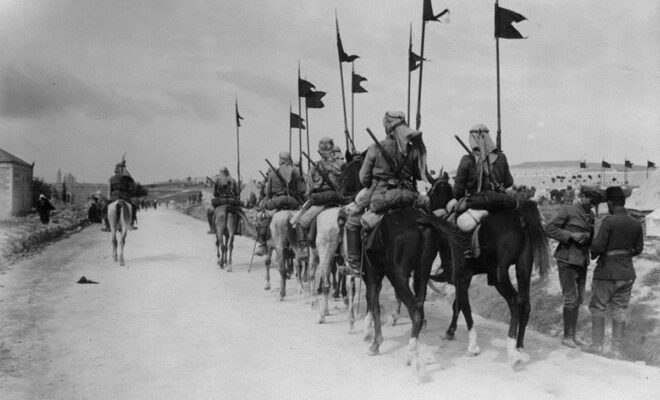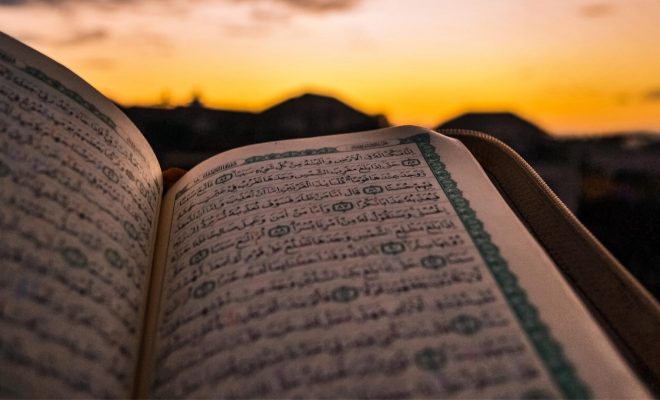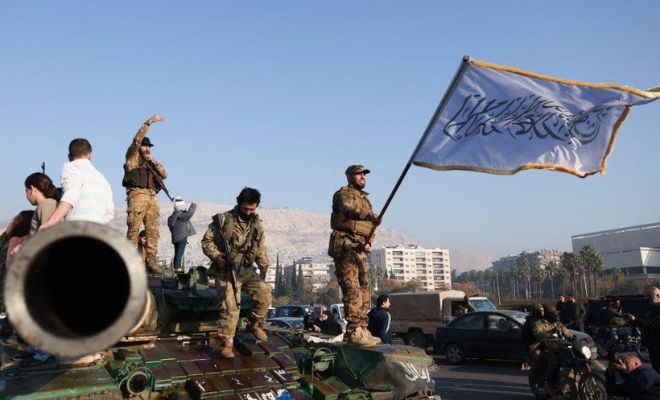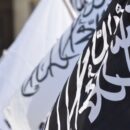Steadfastness in Our Deen After Ramadan
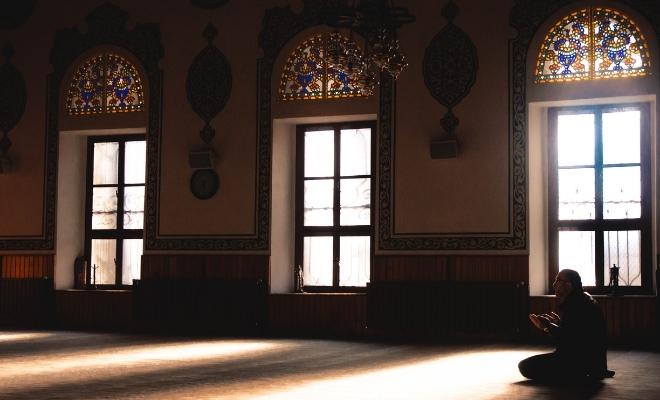
Alhumdullilah, we have been blessed with another Ramadhan this year! May Allah (swt) accept our saum (fast), our salat, our du’a and grant us protection from His Punishment and grant us the highest level of Jannah.
We would also like to congratulate the Islamic Ummah on the occasion of Eid ul-Fitr.
At end of this blessed month, with our commitment to Allah (swt) renewed, and as we celebrate Eid with our families and friends, let us take the opportunity to remind ourselves to remain steadfast in the face of persistent pressure to abandon Islam and its practices. Our Beloved Messenger (saw) warned us of a time when steadfastness on this religion would be difficult:
“A time will come on the people when the patient among them on his religion will be like one who holds live coal (in his hand).” [Tirmidhi]
We can find strength for this difficult task by turning to his example; RasulAllah (saw) faced immense pressure to abandon the call to Allah (swt) and the Deen. We can relate the Prophet’s (saw) example, from when he was leading a powerless community in the oppressive society of the Quraish, to our current reality both here in the Capitalist lands and in the Muslim lands that they control.
RasulAllah (saw): Model of Steadfastness
In the early life of the dawah, we find that RasulAllah (saw) was continuously opposed by Quraish in Makkah.
As the intellectual attacks of the Prophet Muhammad (saw) intensified upon the Quraishi practices of idol worshipping, usurping the wealth of orphans, the ill-treatment of women and slaves, etc., so did the opposition of the likes of Abu Jahl, Abu Lahab and Abu Sufyan (i.e. the chiefs of Quraish) increase towards the Muslims. Their fear was that their control over the population, along with their profiteering from idolatry, would diminish as a result of RasulAllah’s (saw) da’wah. In order to maintain their authority, certain concessions were offered to RasulAllah (saw) to get him to stop his intellectual challenges.
Quraish went to Abu Talib, the uncle RasulAllah (saw), who had been raising his nephew from the age of 8 after RasulAllah (saw) had lost his father, mother and grandfather.
They said: “Abu Talib, you are our elder, the most honoured among us, the highest rank. We asked you to stop your nephew, but you have not succeeded [Previously they offered Abu Talib a replacement in exchange for RasulAllah (saw), Umara, the most handsome amongst the youth of Quraish, but that offer was turned down by Abu Talib.] We shall bear this no longer for he has insulted our forefathers, belittled our aspirations and spoken against our gods. Either you stop him, or we shall fight you and him until one of the two parties perishes.”
Upon hearing this, Abu Talib called RasulAllah (saw) and said: “Stop, for my sake and yours. Do not force me to bear what I have not the power to endure.”
RasulAllah (saw), saddened by the request from his beloved uncle Abu Talib, answered:
“Uncle, if they placed the sun in my right hand and the moon in my left hand to abandon this affair, I would not until Allah made the truth prevail or I died in the attempt.” [Ibn Hisham]
As beloved as Abu Talib was to RasulAllah (saw) – and even though he prevented any physical harm coming to RasulAllah (saw) and his family – RasulAllah (saw) did not waiver in his resolve to call the people to the Deen of Allah (swt). RasulAllah (saw) was in no position to stop spreading and calling for the Deen, since he fully understood what was at stake:
“If I were to disobey my Lord, I should myself fear the penalty of a Great Day (to come).” [Yunus, 10:15]
With the refusal of RasulAllah (saw) to stop spreading the message of Islam, Quraish had turned their attention to the Muslims. Those who were weak and without any tribal protection, namely the poor and the enslaved, were targeted – such as the humble family of Banu Yasir (ra) or the slave of Al-Walid ibn Al-Mughira, Bilal (ra). However, Quraish quickly realized that the more they tried to coerce the Muslims into leaving the Deen, the more they adhered to it.
They cared for nothing except the pleasure of their Lord. Allah (swt) revealed:
“Indeed, those who say, ‘Our Lord is Allah’ and thereafter are steadfast, the angels descend on them. ‘Fear you not! Nor grieve! But receive the Glad Tidings of the Garden (of Bliss), that which you were promised! We are your protectors in this life and in the Hereafter: therein shall you have all that your souls shall desire; therein shall you have all that you ask for!” A hospitable gift from One Oft-Forgiving, Most Merciful” [TMQ 41:30-32]
The Muslims were growing in numbers and their steadfastness was unbreakable, so Quraish sent Utba ibn Rabi’a directly to RasulAllah (saw) instead of using a mediator such as Abu Talib. Utba ibn Rabi’a offered 3 things to RasulAllah (saw) in return for RasulAllah (saw) to stop his da’wah. Each offering had its own significance: money, power, and kingship.
Money or wealth symbolised status in Makkah- simply put, the more money you had, the more important you were.
So, to offer RasulAllah (saw) money or more specifically to make him the richest amongst Quraish would mean that RasulAllah (saw) would become the most notable amongst them all. Offering RasulAllah (saw) power, that nothing would happen in Makkah without his (saw) command would have made him the de facto ruler of Makkah.
Further to this, to offer RasulAllah (saw) kingship was unprecedented in the history of Makkah. RasulAllah (saw) was the first to be offered such a title.
Since Quraish had offered the best of this life to RasulAllah (saw), they thought that only a mad man would refuse such an offer. RasulAllah (saw) responded by reciting part of Surah al Sajda. In this surah, Allah (swt) talks about the wonders of his creations, the nature of man and his ability to do good by his fellow man in the form of charity, kindness, and justice. Utba ibn Rabi’a realised there and then that RasulAllah (saw) was no ordinary man.
Here stood a man who wanted nothing of this world and lived for what was to come in the akhira (Hereafter).
Utba ibn Rabi’a reported back to his Quraishi brethrens about his encounter with RasulAllah (saw) where he said, “leave RasulAllah to the rest of the Arabs… if he overcomes them by his strange words, then all the honour will go to you for you are his people.”
Utba ibn Rabi’a had realised the power in RasulAllah’s (saw) message, and he also had experienced his resolve to see his message succeed and dominate over all other Deens.
Allah (swt) says,
“It is He Who has sent His Messenger with guidance and the Deen of Haq (truth), to make it superior over all Deens, even though the Mushrikeen (pagans/idolaters) may detest (it).” [TMQ 9:33]
Remaining steadfast today
Today the Muslim Ummah faces a similar struggle to hold onto Islam. The Capitalist nations openly attack Islam without any fear of consequences or opposition. They attempt to make Islam look deviant, by distorting the image of Islam; associating it with violence, backwardness. The Capitalist nations, like Quraish, use their attacks on Islam as a smokescreen designed to hide the failures of their own corrupt system.
In these times, when we see Islam continuously being attacked, we should draw our strength from the best of examples. Allah (swt) revealed:
“Indeed, in the Messenger of Allah you have the best example.” [TMQ 33:21]
Consequently, under the pressure from the disbelievers we should hold on fast to the haqq (truth) and not compromise in the face of baatil (falsehood).
Whilst the attacks against Islam may vary in scope, we must understand that the Deen is something we should be honoured to be associated with – even if we are harmed for adhering to it. Locally, we have seen the rise in violent bigotry against Muslims, whether it be against our hijabi sisters who are attacked on the streets of Edmonton or our families that are threatened and even killed in Hamilton and London. This bigotry has even been formalized into law, with the passing of Bill 21 in Quebec, and its ratification in the courts, even though the judge said that the law damages the religious expression of Muslim women in specific.
We also see the agenda-driven media attempts to make Islam look devious by labeling it as violent. When Muslims resist Zionist occupation, stand in opposition to the US war machine, they are labelled violent extremists. In contrast, when white, Ukrainians commit violent acts to resist Russian occupation, they are labeled war heroes.
Our situation in Canada is still not as bad. The Rohingya Muslims in Myanmar have lost everything to the violent Buddhist regime, while the Uyghur Muslims are facing a genocide at the hands of the Communist Party of China. And in India, a land that was united, developed and cared for under Islamic rule for centuries, there is a rising tide of anti-Musim sentiment stoked by the government and its media mouthpieces, leading to an organized campaign of communal violence against Muslims and their masjids.
In the face of this, we should draw our confidence from the fact that Islam is the Deen of Allah (swt) and that it has been sent as a mercy to mankind to tackle the many issues that face our world. It is not surprising that the political and media elite would seek to create an atmosphere of hatred against this deen, they are too well invested in keeping things the way they are.
Another one of their traps is to categorize Muslims into extremists and moderates in order to sow division within the Ummah. We should reject this and not be apologetic or defensive when it comes to our Deen wherever we live. Moreover, like RasulAllah (saw) we should teach the Deen to the wider Muslim community and take the debate to the non-Muslims. For example, the Khilafah system implements, protects, and nurtures all the values in Islam from respecting your parents and elders to cultivating the values of fairness, openness, and honesty in transactions between people, to accountable rulers who serve the citizens of the Khilafah. All of this contrasts with a Capitalist system that protects the vested interests of the elite, wealthy and powerful at the expense of the needs of society.
In the Muslim countries, the Capitalist nations and their agent rulers wish to stifle the revival that is occurring within the Ummah. We see this in the brutal repression meted out by the likes of Assad, Sisi, the rulership of the UAE and the House of Saud against the Ummah. They also wish to stomp out any call for the re-establishment of Khilafah Rashidah. In Turkey, Pakistan, Bangladesh, Uzbekistan and throughout the Muslim lands – even in Palestine – the dawah carriers who call for the re-establishment of the Khilafah Rashidah and the Shariah of Allah (swt) are treated like criminals, even though they are solely working to implement the legal system that Allah (swt) has ordained for us and bring back the glory of Islam.
In light of the actions of RasulAllah (saw), Muslims should feel encouraged and empowered to engage with the wider community, equipped with the intellectual arguments of Islam in how to deal with the issues of society and how desperately Islam is needed to bring about solutions for mankind. Moreover, Muslims should have the Imaan to say that it is the absence of Islam today from our daily life’s practices that is the greatest ill of today’s world.
May Allah (swt) help us to remain steadfast and be not of those that sell the Deen for a miserable price. Ameen.
“And We have not sent you (O Muhammad) except as a Mercy to mankind.” [Anbiya, 21:107]


